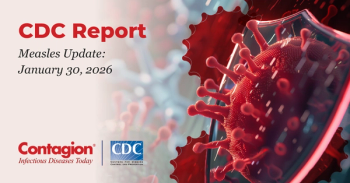
Booster Doses of mRNA Vaccines Protected Against Severe COVID-19 from Omicron
Recent booster shots of mRNA vaccines prevented severe infection, hospitalization and death during the Omicron wave of the pandemic, despite a higher rate of breakthrough infections than was seen during the Delta wave, a new study found.
Booster doses of mRNA COVID-19 vaccines provided strong protection against hospitalization and death during the Omicron wave of the pandemic in Qatar despite being less effective against symptomatic infection, a new study confirmed.
The study, published in the
“There are substantial gains from having a booster, as it reduces the likelihood of getting a symptomatic Omicron infection by about 50%,” study author Laith Jamal Abu-Raddad, PhD, told Contagion. “The effectiveness of booster against COVID-19 hospitalization and death is even better, at about 80%. Having a booster recently is very protective against COVID-19 hospitalization and death due to Omicron.”
The primary outcomes was symptomatic infection and secondary outcomes were severe, critical or fatal cases of COVID-19.
Among those who received the Pfizer-BioNTech vaccine, the incidence of symptomatic infection from the Omicron variant was 2.4% among those who received a booster and 4.5% among those who only received the primary series only. The estimated effectiveness of the booster against symptomatic illness from the Omicron variant was 49.4%. Effectiveness of the Pfizer-BioNTech vaccine against severe, critical or fatal COVID-19 was 76.5%. Effectiveness of the Pfizer-BioNTech vaccine against the Delta variant was 86.1.
Among those who received the Moderna vaccine, the incidence of symptomatic infection from the Omicron variant was 1% among those who received a booster and 1.9% among those who only received the primary series only. The estimated effectiveness of the booster against symptomatic illness from the Omicron variant was 47.3%. No cases of severe, critical or fatal COVID-19 were reported among those who received the Moderna booster and three severe cases were reported among those who received only the primary series.
“The fact that the protection is only at 50% against Omicron is not best,” Abu-Raddad said. “Against earlier variants such as Delta we had much better protection, greater than 80%. This suggests that we need to start thinking about developing a new generation of vaccines with high protection against a broad range of variants and an effectiveness that does not wane rapidly.”
To control for waning immunity, the study matched pairs of people exactly according to the calendar week they received their second dose of an mRNA vaccine.
“As long as we have the current generation of vaccines, recent booster vaccination is critical to protecting those most vulnerable to COVID-19 hospitalization and death,” Abu-Raddad said.
Abu-Raddad said investigators will continue their research with longer-term follow-up of the vaccinated cohorts to see how the effectiveness of the booster shot will wane over time.
Recent studies have shown that the efficacy of mRNA vaccines against COVID-19 wanes over time. The U.S. Centers for Disease Control and Prevention
A
Newsletter
Stay ahead of emerging infectious disease threats with expert insights and breaking research. Subscribe now to get updates delivered straight to your inbox.



































































































































